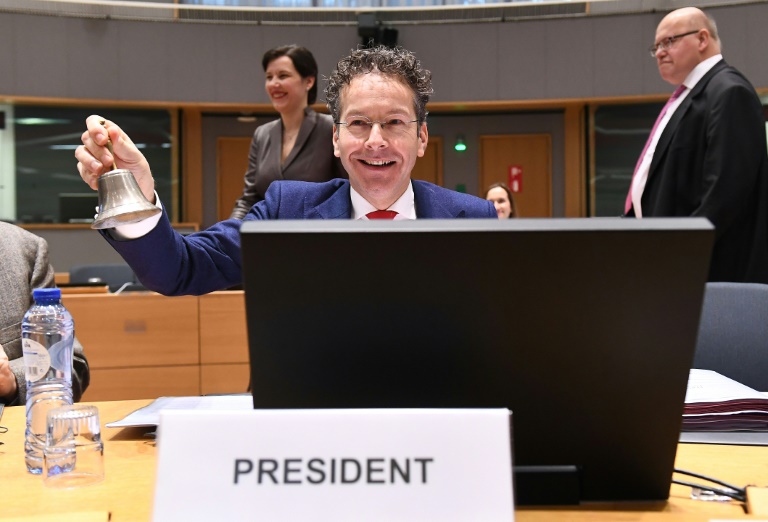
Former Eurogroup President Jeroen Dijsselbloem says the euro currency is a source of stability in the face of rising populism. (Photo: AFP)
Two decades after Europe's core economies adopted a single currency, former Eurogroup head Jeroen Dijsselbloem, argues that the euro is a source of stability against the rise of populism.
The former Dutch finance minister was chairman of the committee that runs the 19-country eurozone between 2013-2018, when it survived the Greek debt crisis.
Now, he says, the currency needs stronger buffers against future shocks, but still serves as an anchor at a time when Europe's political future has been clouded by the rise of nationalist forces.
Is the Eurozone ministers' council still the best decision-maker?
Dijsselbloem: "The Eurogroup has in the last decade proven to be one of the most efficient decision-making bodies in the EU. The ministers take decisions in unanimity, yet it never comes to a vote.
"Democratic legitimacy is anchored in the national parliaments and a link with the European Parliament could be developed further.
"The kind of, sometimes very intrusive, measures that were agreed in the Eurogroup in the context of country-specific programmes should be carefully avoided in the future.
"Whether we will successfully stay out of this kind of trouble, depends very much on national politicians dealing with the macro-economic imbalances in the member states."
In the crisis, was the guilder ever coming back, or is the euro irreversible?
Dijsselbloem: "No, there was never a moment in which I thought the guilder would come back. The only real threat we faced was the Greek drachma returning.
"Given the huge impact this would have had on Greece, first and foremost, but also on the future of the eurozone as a whole, it has been my aim to keep the whole eurozone intact, not leaving anyone behind.
"I believe that the very strong political will to do just that, also of course among government leaders, has been the most crucial element in our recovery."
Would a new debt crisis like the Greece one mean the end of the eurozone?
Dijsselbloem: "A crisis of this sort, size and impact will not take place again. It came from an -- with hindsight -- unbelievably irresponsible credit boom.
"Many of the loans so easily provided, were not invested but consumed or were used to blow up even further the real estate and housing sectors.
"And all this while we deregulated the banking sector -- the biggest mistake of all.
"The eurozone is now so much better prepared, with better rules and regulations, better institutions and funds, which we can use in time of a crisis. We truly are in a very different situation now.
"The eurozone has been slow to get out of the crisis but has recovered strongly since. The next crisis will more likely come from the US again or from China.
"All we can do is to be prepared as well as possible. At this moment we have too little shock absorption capacity or, in plain English, too few buffers. More work will have to be done."
Why do eurosceptic countries -- such as Italy -- want to stay in the euro?
Dijsselbloem: "Because, very simply, the euro and its institutions are now a guarantee for stability -- and some politicians offer the opposite.
"We saw the same thing in Greece: people were understandably very unhappy about the ongoing recession and blamed, wrongly, Europe.
"But when the Grexit vote was 'nay', both the population and the politicians stepped back and said: Whatever happens we want to stay in the euro.
"The same step back was taken by French voters of Marine Le Pen, by Geert Wilders voters in The Netherlands and so on."
What needs to be done for the euro to survive another 20 years?
Dijsselbloem: "The key priorities, very simply, are to finish the banking union and create real capital markets union in Europe. We are still too bank dependent and need more equity investments.
"These two elements will hugely improve our investment climate and will make the monetary union much more shock proof. Public funds are not the best transfer mechanism in case of a shock, but private funds through capital markets are.
"It requires brave politicians that focus on what really matters when you want to achieve more growth."


